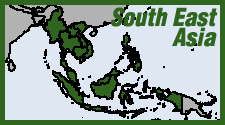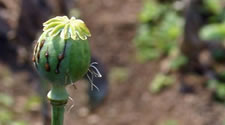 Identical twin brothers Pedro and Margarito Flores on Jan. 27 were the latest to be sentenced in a series of high-profile federal cases targeting the Sinaloa Cartel's operations in Chicago. Accused of running a continent-spanning trafficking ring, they each received 14 years in prison after US District Judge Ruben Castillo agreed to sharply reduce their term in recognition of their work as government informants. Castillo called the Flores twins, natives of Chicago's West Side, the "most significant drug dealers" he'd dealt with in two decades on the bench, stating that they had "devastated the walls" of US national security by bringing at least 70 tons of cocaine and heroin into the country from 2005 to 2008. Prosecutors also charged the twins smuggled $1.8 billion back to Mexico—wrapped in plastic and duct tape. But it was federal prosecutors who pleaded for leniency, hailing the twins for gathering evidence against the Sinaloa Cartel's long-fugitive kingpin "El Chapo" Guzmán, who was finally busted in Mexico last year.
Identical twin brothers Pedro and Margarito Flores on Jan. 27 were the latest to be sentenced in a series of high-profile federal cases targeting the Sinaloa Cartel's operations in Chicago. Accused of running a continent-spanning trafficking ring, they each received 14 years in prison after US District Judge Ruben Castillo agreed to sharply reduce their term in recognition of their work as government informants. Castillo called the Flores twins, natives of Chicago's West Side, the "most significant drug dealers" he'd dealt with in two decades on the bench, stating that they had "devastated the walls" of US national security by bringing at least 70 tons of cocaine and heroin into the country from 2005 to 2008. Prosecutors also charged the twins smuggled $1.8 billion back to Mexico—wrapped in plastic and duct tape. But it was federal prosecutors who pleaded for leniency, hailing the twins for gathering evidence against the Sinaloa Cartel's long-fugitive kingpin "El Chapo" Guzmán, who was finally busted in Mexico last year.

 Despite a democratic opening and hopes for peace with the ethnic insurgencies in the northern hinterlands, horrific accounts of rights abuses continue to emerge from the multi-sided war over Burma's opium production. According to reports from village leaders, Burmese army troops on Jan. 19 tortured, raped and killed two young volunteer teachers. The women were both Kachin and Christians, so may have been targeted for ethnicity or religion. The attacks came when the village of Shabuk-Kaunghka, in Shan state's Mungbaw township, was occupied by a Light Infantry battalion that entered the area following clashes with the Kachin Independence Army (
Despite a democratic opening and hopes for peace with the ethnic insurgencies in the northern hinterlands, horrific accounts of rights abuses continue to emerge from the multi-sided war over Burma's opium production. According to reports from village leaders, Burmese army troops on Jan. 19 tortured, raped and killed two young volunteer teachers. The women were both Kachin and Christians, so may have been targeted for ethnicity or religion. The attacks came when the village of Shabuk-Kaunghka, in Shan state's Mungbaw township, was occupied by a Light Infantry battalion that entered the area following clashes with the Kachin Independence Army ( 2014 witnessed considerable fraying of the international Drug War consensus—but the horrific violence that finally sparked this long-overdue reckoning continued to take its grim toll. On the upside, Uruguay regsitered its
2014 witnessed considerable fraying of the international Drug War consensus—but the horrific violence that finally sparked this long-overdue reckoning continued to take its grim toll. On the upside, Uruguay regsitered its  The sentencing last month in a case related to the Sinaloa Cartel's
The sentencing last month in a case related to the Sinaloa Cartel's  Opium poppy cultivation in Afghanistan rose 7% from 209,000 hectares in 2013 to 224,000 hectares, according to the 2014 Afghanistan Opium Survey (
Opium poppy cultivation in Afghanistan rose 7% from 209,000 hectares in 2013 to 224,000 hectares, according to the 2014 Afghanistan Opium Survey (





Recent comments
3 weeks 3 days ago
4 weeks 4 days ago
4 weeks 4 days ago
5 weeks 6 days ago
11 weeks 23 hours ago
13 weeks 3 days ago
18 weeks 4 days ago
30 weeks 4 days ago
32 weeks 5 days ago
33 weeks 5 days ago